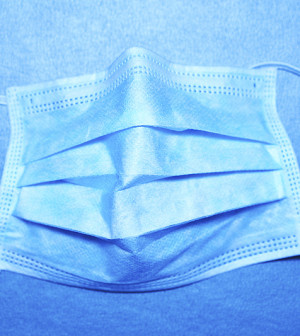- Could Your Grocery Store Meat Be Causing Recurring UTIs?
- Are You Making This Expensive Thermostat Error This Winter?
- Recognizing the Signs of Hypothyroidism
- 10 Strategies to Overcome Insomnia
- Could Artificial Sweeteners Be Aging the Brain Faster?
- Techniques for Soothing Your Nervous System
- Does the Water in Your House Smell Funny? Here’s Why
- Can a Daily Dose of Apple Cider Vinegar Actually Aid Weight Loss?
- 6 Health Beverages That Can Actually Spike Your Blood Sugar
- Treatment Options for Social Anxiety Disorder
Many Americans Under 50 Living With Cold Sore Virus


More than half of Americans aged 14 to 49 carry the virus that causes cold sores — those small blisters around the mouth that may come and go, according to the American Academy of Dermatology (AAD).
“Cold sores may appear just once in a person’s lifetime or return again and again,” said Dr. Bruce Brod, a clinical professor of dermatology at the University of Pennsylvania, Perelman School of Medicine in Philadelphia, in an AAD news release. Cold sores are caused by a virus that stays in the body, even when there are no active cold sores, according to the AAD.
Sometimes people mistake cold sores for canker sores. But canker sores aren’t caused by a virus, and they occur inside — rather than outside — the mouth, according to Brod.
Certain factors can trigger cold sores. The list includes stress and fatigue, sun exposure, cold and flu, fever, hormonal changes due to events like menopause and pregnancy, and trauma to the skin from things like shaving, dental work and plastic surgery, according to the AAD.
Fortunately, most cold sores will go away without treatment, but there are ways to reduce symptoms.
Brod recommended applying an over-the-counter antiviral cream or ointment at the first sign of burning, itching or tingling. Ibuprofen or acetaminophen can help with pain, and it’s wise to avoid acidic foods like certain fruit juices and tomatoes. A cool, wet towel placed on the cold sore for up to 10 minutes can be soothing.
If you get cold sores a lot, consider contacting a doctor. “Cold sores usually heal in a few days to a couple of weeks. However, prescription oral antiviral medication may be helpful for shortening the episode if taken within the first 72 hours.
He added that the medication may also be used for prevention.
Other steps to help prevent the spread of the cold sore virus include not sharing cups, towels, toothbrushes or even kisses when you have a cold sore, according to Brod.
More information
For more about cold sores, try the U.S. National Library of Medicine.
Source: HealthDay
Copyright © 2026 HealthDay. All rights reserved.










